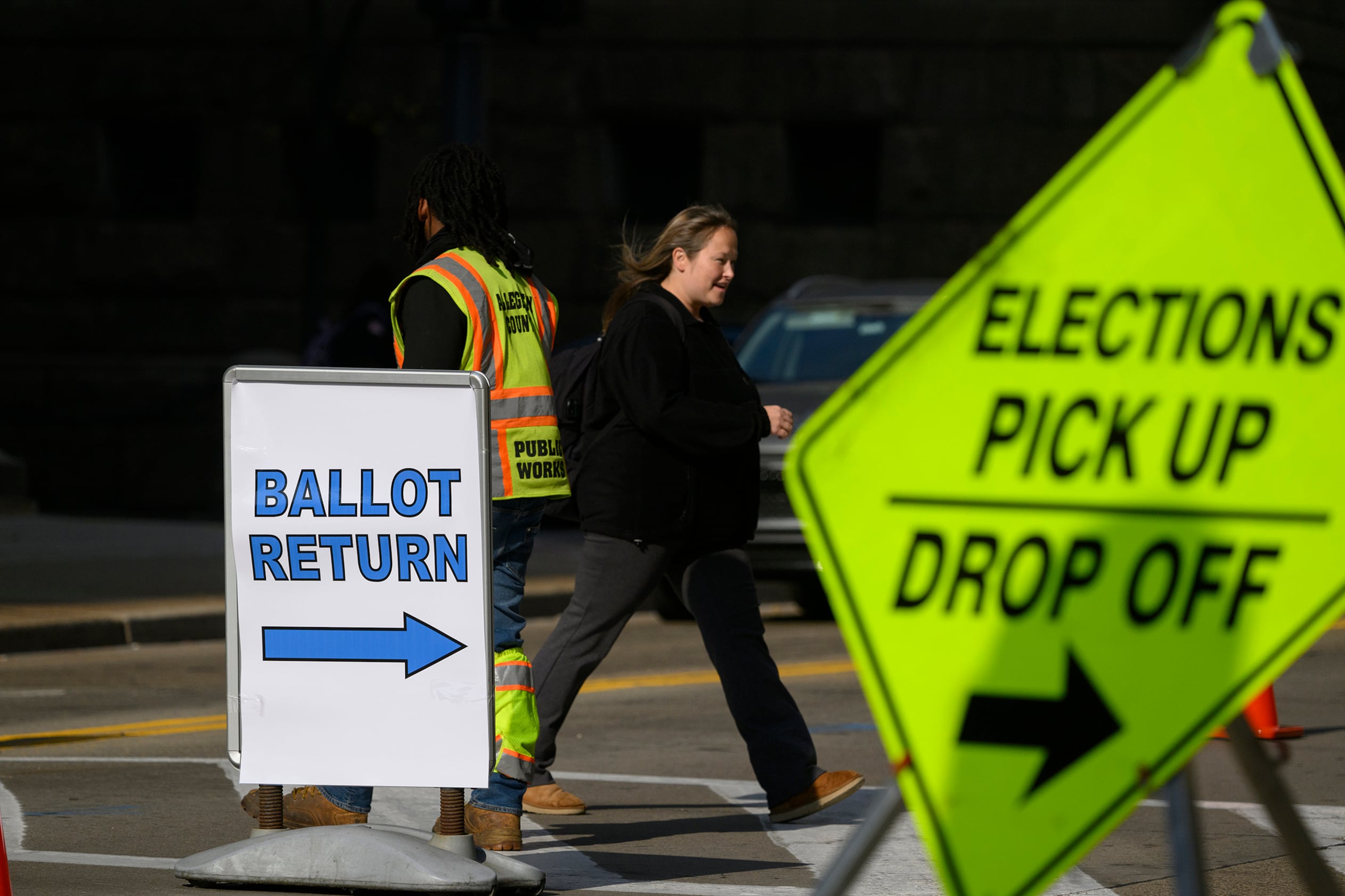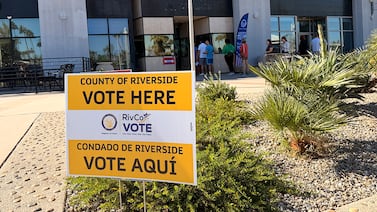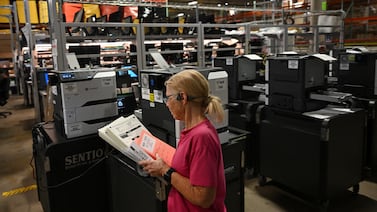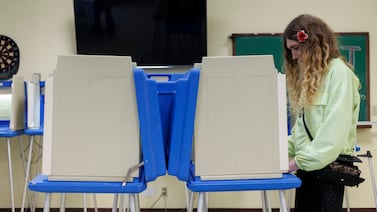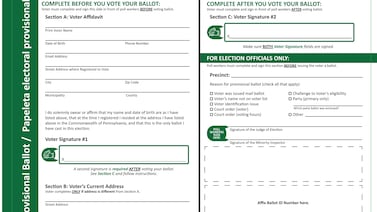Votebeat is a nonprofit news organization reporting on voting access and election administration across the U.S. Sign up for Votebeat Pennsylvania’s free newsletter here.
It has been hard to keep track of the disputes over Pennsylvania’s voting rules this year, especially these past two months. Different interpretations of state law have led to different rules from county to county. There have been court rulings, appeals, more rulings, dismissals, and new court cases filed, sometimes whiplashing from week to week.
It is a lot. As we saw with one of the plaintiffs in a September lawsuit from Philadelphia dealing with undated mail ballots, it can cause confusion for voters. A voter’s mail ballot was rejected for a dating error during a Philadelphia special election that took place right after one court reversed another court’s decision from just weeks earlier, which held that dates on ballot envelopes didn’t matter.
Election Day is unlikely to bring an end to this confusion. If 2020 is any guide for what we will see tomorrow and in the coming weeks, there will likely be new disputes over which votes should count.
As things stand now, in order for a mail ballot to be counted, voters need to put the ballot inside a secrecy envelope before placing it in the return envelope, which they must sign and date.
If a voter makes a mistake on any of those steps, and if their county has a practice of alerting them about the mistake, they can then cast a provisional ballot at their polling place on Election Day. So long as there is no other disqualifying error, that provisional ballot should be counted, thanks to an Oct. 23 state Supreme Court decision.
But the current state of play could be upended once again after the election with more legal challenges on these unresolved issues.
Problems pop up in the morning
Election Day can often be a hectic time when news, and misinformation, travel fast. Here is how to follow along smartly and avoid trouble if you still plan to vote.
Keep in mind elections are run by humans, not perfectly programmed robots operating in a sterile environment free from outside variables.
Typically, when problems arise, voters and officials notice them in the morning when polls open.
There are always some minor things. Someone forgets the keys to open a polling place. A tree falls on a road, blocking the parking lot. Maybe a poll worker oversleeps their alarm.
More serious problems also tend to be noticed in the morning. When Luzerne County ran out of ballot paper in November 2022, that was noticed in the morning. Similarly, when voters in Northampton noticed problems with how voting machines were displaying their votes in last year’s municipal election, that was also in the morning.
County election officials understand the scrutiny they are under, and that mistakes in their county will reflect not just on them, but the entire state. They’ve worked to prevent such things from happening again, but no one can entirely eliminate human error.
If something does happen that seems to be disrupting voting, wait till you know the facts before jumping to conclusions or repeating what you’ve read or heard. Or at least stick to what you can confirm at the moment.
The state likely won’t have results on election night
We’ll spare you the history lesson, but the bottom line is Pennsylvania cannot start processing its mail ballots until 7 a.m. Tuesday. As of Monday, 1.79 million mail ballots had been returned, and that number is going to continue to rise on Election Day. Philadelphia alone has over 178,000, and Allegheny County, home to Pittsburgh, has over 214,000.
Processing a mail ballot is more or less like opening the mail at your kitchen counter. You have to slice the top of the envelope open, take the contents out, and then flatten them out before you can read them. But election workers have to open two envelopes before they can start flattening the ballots and scanning them in tabulators.
Even with hundreds of workers and high-speed machines, this takes time. Counties have gotten better at this process since 2020, and many will likely finish on election night, but others won’t.
If Pennsylvania is as close as presidential polls predict, or as close as it has been the last two cycles, the number of ballots left to count could make a difference in when a winner of the state can be declared. There is no surefire way to know right now how long this will be.
So just be patient.
Misinformation travels quickly. Don’t help it along.
Foreign nations are looking for every chance they can to sow distrust in our elections, as we saw last month with a fake video of ballots being destroyed in Bucks County, which officials have attributed to Russia. Bad actors in the U.S. are at it, too.
Misinformation has blown up rapidly across Pennsylvania recently. Former President Donald Trump, in a claim amplified by Elon Musk, wrongly claimed that 2,600 fraudulent ballots had been filled out by one person in Lancaster County. A viral video showing a postal worker delivering ballots to Northampton County — which is his job as a postal worker — was used to falsely claim election fraud was happening in the county.
But more mundane misunderstandings of what is happening or how things work can also cause problems. Several national outlets mistakenly reported in September that “early voting,” which Pennsylvania technically does not have, would be starting Sept. 16. The ballots weren’t even ready then.
On Election Day in 2022, we reported on a viral rumor about a judge extending the deadline for voters to return mail ballots. It wasn’t true, and it caused confusion.
Think about what you are saying or sharing before you say or share it.
Return your ballot to the right place
If you still have your mail ballot, whatever you do, don’t put it in the mail now. It will not get to the county in time to be counted. Instead turn it in at a ballot drop box or directly to an election office.
Mail ballots have to be received by the county by 8 p.m. on Election Day. You can find your county elections office, a drop box, or a satellite voting office here.
Don’t forget to sign and date the outer envelope, and place the ballot in the yellow secrecy envelope before placing it in the outer return envelope.
If you have a mail ballot in hand, but decide you no longer wish to vote by mail, bring your mail ballot package with you to the polling place so that poll workers can cancel it and allow you to vote in person.
If you are voting at the polls, you can find your polling place here. As long as you’re in line by 8 p.m., you’re allowed to vote.
Carter Walker is a reporter for Votebeat in partnership with Spotlight PA. Contact Carter at cwalker@votebeat.org.

